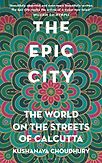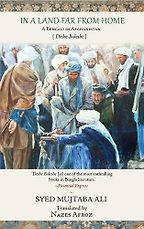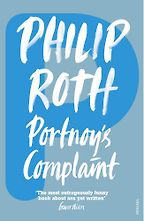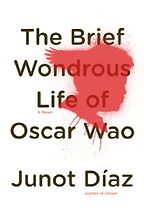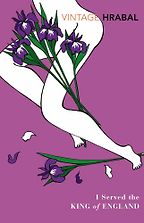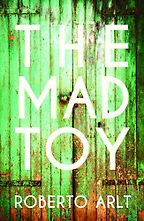As a prism through which to view the city of Calcutta and broader questions of India in literature, you’ve chosen to recommend five books that influenced your own book of Calcutta, The Epic City. How did that book come about, and what are you trying to say about the city in it?
No one in my family is a writer. In fact, until I went to college I didn’t know any writers at all. The first writer I ever met was John McPhee, whose “Literature of Fact” seminar I took as a junior at Princeton University. John would meticulously mark up each first draft, and then meet with me for biweekly 45-minute sessions where he would go over the draft line by line. I was some 19-year-old kid and he had a Pulitzer Prize, but John treated us all like fellow members of the guild of craftsmen who were writers.
After graduating from Princeton, I moved to Calcutta, India, to become a newspaper reporter. I kept in touch with McPhee. Whenever I went back to New Jersey, he would take me out to lunch at the Annex, a basement bar and cafe in downtown Princeton which used to be a local hangout spot. John always supported my crazy decision to move to Calcutta, because he said it was important to have the widest possible set of experiences at a young age, as that would fuel the writing. There was nothing worse, he told me, than graduating and moving to New York, which would have been the natural step for an aspiring writer.
I was back from Calcutta for Thanksgiving one year and we were having lunch at the Annex. I was telling him about my work at the newspaper and he said, ‘Why don’t you write a book about Calcutta?’ That conversation took place 14 years ago. But it’s how I got the idea to write a book about Calcutta, and more importantly the chutzpah to pursue the life of a writer.
It took me four years to write this book, after a year of research, five years in all. It took two more years to find a publisher for the book as I hadn’t had a book contract. You have to be a fairly driven and compulsive person to write a book because it takes a long time. You have to stick with it when there’s no boss or teacher looking over your shoulder to check on your work. And it’s lonely. The writing life is mainly about sitting alone in a room, butt in your seat, day after day, week after week, month after month. It’s like voluntarily putting yourself into solitary confinement. I stuck with it because that’s what McPhee taught me – perseverance.
“There are probably more novels published each year that are set in Brooklyn than in all of India”
I remember meeting him for lunch once, years after I’d graduated from college. It was at a time when he was in the middle of writing the first draft of a new book. I asked him what he planned to do after lunch and he said he’d go back to the office and try to write, then sharpen all his pencils until there was nothing left to sharpen, then panic, finally write a little bit before 4:30 so that he could allow himself to go on a bike ride. He was in his seventies. By that point he had been writing for the New Yorker for over four decades and had written dozens of books. I think about that a lot when I struggle – that John McPhee still sharpens pencils to avoid writing.
It never gets easier. But if you keep at it, you will make progress.
How is India itself generally represented in literature – in both fiction and nonfiction, and both by Indian and foreign writers – and does that depiction fall short of reality?
1 in 6 people on this earth right now lives in India. But is every sixth novel being published today set in India? What about every 600th novel? There are probably more novels published each year that are set in Brooklyn than in all of India. Until that changes, the answer will continue to be quite obvious.
We have not even begun to get started. A wise first step would be to stop commissioning big India books, which are almost all duds because they all say the same thing: “For thousands of years, everyone in India lived static lives bound by tradition. Then globalisation came and offered opportunities for freedom from old strictures, as well as material affluence. Many rose and some fell behind, etc etc.” I think anyone could sit in Europe (or any of the Global-North enclaves of India), read Henry Maine, and write an India book without leaving their house.
You can’t blame the writers; the project is doomed by definition. You’ll note that the best non-fiction out of India in the last three decades are all books about specific cities like Katherine Boo’s Behind the Beautiful Forevers, Suketu Mehta’s Maximum City or William Dalrymple’s City of Djinns, or books about specific, ordinary individuals, like Aman Sethi’s Free Man or Sonia Faleiro’s Beautiful Thing. Even the city books focus on a few specific characters and mine a few specific places for fine-grained details to tell a larger story about a city and a society. I use these techniques in my book too, following lots of small stories about ordinary people to tell a big story. You have to go small to say something big.
The other location that has influenced your development is New Jersey, where you also grew up. How do those two very different metropolises compare to each other, and what do we learn through the comparison?
New Jersey is a small state of about nine million people wedged between New York and Philadelphia. It has a few small dirt-poor cities and lots of lower-middle to uber-rich suburbs. I grew up in a pretty diverse middle-class suburb of about 20,000 people, which felt like a small town. My parents still live near there. I have friends whose parents live in town. When I go home I show up at their houses without calling first and walk in and chat with their moms. They’ve all known me since I was a teenager. When my high school friends and I are back home together for the holidays, we still go to diners and order breakfasts, no matter what time it is, and drink bottomless cups of coffee and shoot the shit for hours. So there are echoes of the way I am in Calcutta in the way I am in Jersey. I’m me, my habitus is the same, only the language changes. There’s more to it though, a lot more, about race, loss, the immigrant’s Faustian bargain with America, but I’d have to sit alone in small rooms and dig deep for a few years and come out with a book to be able to answer it fully. Maybe that’s what the novel I’m currently dredging out of my subconscious is really about. Who the hell knows, until it’s done.
What is the common thread that connects these miscellaneous influences, besides the fact that you’ve been influenced by them all?
The common thread is that they’re all funny. That’s not a coincidence. Each of these books innovates at the level of narrative structure. Portnoy may seem pretty standard today, but at the time when it was written, a novel organised around a series of therapy sessions was far from a standard narrative. As far as I’m concerned humour is a necessary narrative technique, to buy yourself some goodwill when you’re trying to lead your reader through a new way of telling a story. You want her to be charmed enough to stick with you and not notice that you are on an uncharted path. You don’t want her to lose faith, close the book and turn away.
Well, let’s get stuck into the books themselves. Tell us about your first selection, a Bengali travelogue of Afghanistan by Syed Mujtaba Ali, recently translated by Nazes Afroz as In a Land Far From Home.
Ali was a polyglot and lived a peripatetic life. He also opened up a whole new genre of writing in Bengali, which was non-fiction prose that resembled ‘storytelling’ in the sense that Walter Benjamin writes of the Russian writer Nikolai Leskov in his classic essay on modern literature, “The Storyteller”. In fact the only work of literature that Ali every translated into Bengali, that I know of, was Leskov’s novella, Lady Macbeth of Mtsensk.
Ali was one of the most erudite Bengali writers of his generation. He had a PhD in Comparative Religion from Bonn, had taught all over the world, and spoke over a dozen languages. But no matter what subject he wrote about, whether it was a war in Afghanistan or German philology, it seemed like he was just a guy telling you a story over a cup of tea at a cafe. In fact one of my favourite short pieces by Ali is an essay on the city of Cairo, where he had lived and taught, told entirely as an account of the happenings of the characters and conversations in one Cairo cafe. I learned a lot from him.
His classic book, Deshe Bideshe (In a Land Far from Home) is about his stint in Kabul in the 1920s during King Amanullah’s rule. It shows you a whole alien society but its also fun to read and extremely funny. I haven’t read the translation, but I hope it’s good. Amitav Ghosh openly acknowledges his debt to Ali in writing In an Antique Land, which is his genre-defying travelogue on Egypt. In an Antique Land, and Ghosh’s early novel Shadow Lines, which is set in Calcutta and deals with Partition, both had a significant impact on me as a writer. So the Ali influence comes directly and also in this diffuse way through Indian English literature.
Next up is a more mainstream recommendation, Portnoy’s Complaint by Phillip Roth.
The paradigmatic novel of New Jersey for me is Portnoy’s Complaint. In fact I write about it in the Calcutta book. It sets up the basic problem of immigrants – the failure to assimilate into a normal American life because the past keeps sabotaging you. In Portnoy, as in most Roth novels, that past is the Jewish world of Newark, and the doomed and absurd attempts to recover it, in Israel, through sexual conquest, through therapy, and so on.
Once you leave you mini community in Newark, and become a liberal individual, an American (and in the Jewish case, for the first time, “white”) you become utterly alone, homeless. No alternate collective life awaits you on the other side of assimilation, no place that you can call home. Out of the ghetto and into the abyss. It’s this central problematic of even the successful trajectory of American immigrants that is Roth’s great subject. And even though this is ostensibly a book about Calcutta, I think I also write on the same subject, mining the same things.
“The writing life is mainly about sitting alone in a room, butt in your seat, day after day, week after week, month after month”
The failure to emerge out of the abyss is a political failure. The other thing about Roth is that he understood the relationship between politics and the individual, that politics was not about belief or your inner life – that’s faith. Politics is about how you organise your public life, your public self in the world with others, what kind of world you try to make. You may fail, you may be completely flummoxed, but this project is what still drove Jews in Roth’s childhood to fight at dinner tables, what drives the daughter of the great assimilated hero, Swede Levov, to 1960s radicalism. Roth understood the relationship between the individual and the political from childhood experience in a way that the next generation of American writers, raised in suburbs, often do not. From Aristotle’s time onwards, the polis – the city – and politics are connected. The failure to produce a new city, a new society in the utopia of suburban assimilation is a failure not only of urban planning or social organisation but of the political imagination.
Your third book is Junot Diaz’s Brief Wondrous Life of Oscar Wao. What does this Hipsanic author have which connects him to your writing?
Diaz, like Roth, grew up very close to where I lived in New Jersey, and he represents to me the next generation of New Jersey writers who have dealt with these themes. They form a literary tradition to which I lay claim. The places he describes in his fiction are places where I grew up. In the Brief Wondrous Life of Oscar Wao, there’s a scene where Oscar Wao tries to kill himself by jumping off a rail bridge across the Raritan river. That bridge is just down the street from my house. To this day, I can’t take a train across it without thinking of that incident. As far as I’m concerned, it happened. Oscar Wao is very real to me. When I read Wao, I think, there but for the grace of God go I.
My book on Calcutta opens in Ellis Island and then takes us on long drives at night down the same roads that Oscar travelled, journeys full of despair, that lead back to the places where we began. The main predicament, as I see it, for Oscar Wao, for us, is that we cannot start over in America, as new men, without history. For Roth, the past is the Jewish world of Newark, but for Diaz, as for me, the past is another country. That past haunts Wao, it literally drags him back into history, into the brutal dictatorial past of Trujillo and the Dominican Republic, and it ultimately destroys him. There is a poem by Cavafy that I quote in the book, “As you have destroyed your life here/ In this little corner, you have ruined it in the entire world.”
Like Wao, I kept getting drawn back into Calcutta over and over, despite myself. But I’m still here, and writing. Maybe that saved me.
Tell us about your fourth pick, Bohumil Hrabal and I Served the King of England.
I Served the King of England is a Czech picaresque novel which narrates the whole 20th century history of Czechoslovakia – Nazism, Stalinism – from the perspective of a semi-literate waiter whose only goal seems to be to try to get laid. It’s hilarious and I learned a lot from the book about how to write the 20th century history of Bengal and Calcutta without making it read like a history book. I really struggled with that at one stage of the writing process and I read a lot of books to figure out a workaround, but no one helped me as much as Hrabal.
This novel, and another one by Hrabal, were made into films by Jiri Menzel, and were part of the Czech New Wave. Hrabal was also a big influence on Milan Kundera. He was in turn heavily influenced by Jaroslav Hasek who wrote The Good Soldier Svejk, which is a hilarious novel about a coward trying to evade conscription during World War I. Hasek and Hrabal both write like they’re telling stories at a bar, and in that I think they’re part of an Eastern European tradition that’s connected to oral storytelling. There’s a link with Leskov’s work too, I suspect, where the novel seems like a transcript of a storyteller’s narration. I think Syed Mujtaba Ali was familiar with this genre of literature, having read such works translated in German or French, and he imported this form into Bengali and melded it with our own storytelling and “adda” or raconteur traditions. I’ve tried to copy and adopt that mode of writing in my book, though I don’t know to what extent I’ve succeeded.
Finally, tell us about The Mad Toy by Roberto Arlt.
Roberto Arlt was an Argentinian novelist and journalist, a contemporary of Jorge Luis Borges, but one who came from a broken home, was barely educated and began working at a young age. He was the son of poor German immigrants, and he learned to read literature through bad translations of Russian and German writers. There’s a kind of madcap genius at work in Arlt that’s only possible in a person who is an autodidact. His language is a mix of slang and literary Spanish combined with immigrant patois, and his characters and their schemes are utterly unpredictable.
The Mad Toy is about a kid doing odd jobs, hustling to make his way in a cutthroat world, and being cutthroat himself. It’s largely autobiographical and has a throbbing energy, a bit like Truffaut’s film 400 Blows, which is also autobiographical – both are narratives of the artist in his hardscrabble, and petty-criminal, youth. There’s another novel by Arlt called The Seven Madmen, which is devoted more to the crazy utopian political schemes by megalomaniacs and criminals. Arlt was a bit of a crank himself. He devoted much of his short life to trying to invent pantyhose that wouldn’t fall down — stuff like that which he thought would make him filthy rich — instead of writing. Arlt also wrote long articles in newspapers about everyday life in Buenos Aires — these pieces were called aguafuertes and have been compiled into volumes, though they have not been translated into English. Many of them have the same energy, dark humor, and experimentation with language that’s there in the novels. The aguafuertes are similar to Joseph Roth’s feuilletons in What I Saw.
They had a lot of influence on me when I was writing about Calcutta. All writers are autodidacts in a way. You have to learn the craft on your own – that even McPhee was very clear about – by doing and doing, over time for thousands of hours and many many years. I feel like that’s even more true when you’re writing about places or subjects that are over-inscribed, where a great deal has been written about them already, but very little of it feels true. To write about a place that has been written about repeatedly by outsiders who knew very little about the languages or cultures or historical particularity of the place, and who masked their ignorance with their ready disdain, I think you can’t rely on what others have written. You have to start anew, use your intuition, your common sense, and all your senses. A city like Calcutta is not just big buildings and monuments but street corners and neighbourhood clubs and pujo pandals, sounds and bodies and moments. You can listen to a street like you would listen to a symphony. You can read a whole political history of a city from its wall graffiti, or tell a story of its industrial past from the names of closed factories that only remain in bus conductors’ calls. In such situations, we all have to become autodidacts, and Arlt is a good guide on how to proceed. I feel like nobody described the world of the street better than Arlt.
Those who write about cities often fall back on Walter Benjamin’s writings and his notion of the flaneur. I greatly admire Benjamin, especially as a literary critic and a theorist, but Benjamin on cities to me always reads like a distant observer, watching life happen through a thick sheet of glass. In contrast, Arlt writes from the heart of the action. I used a quote from one of Arlt’s aguafuertes as the epigraph of The Epic City:
He llegado a la conclusión de que aquél que no encuentra todo el universo encerrado en las calles de su ciudad, no encontrará una calle original en ninguna de las ciudades del mundo. Y no las encontrará, porque el ciego en Buenos Aires es ciego en Madrid o Calcuta…
I have come to the conclusion that he who does not encounter the whole universe in the streets of his city will not encounter an original street in any of the cities of the whole world. He won’t encounter them because those who are blind in Buenos Aires are blind in Madrid, or in Calcutta…
Does that mean that we don’t need to travel to understand the world, but can do it from home, vicariously, through our reading?
Some people can: the Mycroft Holmeses of the world, tubby and content, who sit in Pall Mall and know the entire goings on of the world outside. I really envy them. The rest of us, like his little brother Sherlock, have to hit the streets.
I think what Arlt meant was what Socrates meant when someone remarked about a friend of theirs who had just returned from a long trip and seemed no less cantankerous than when he had left. Socrates said, look who he had as his travel companion. There’s a bit of that in the character of Ila, in Ghosh’s Shadow Lines, who travels the whole world and sees only airport lounges. Arlt himself traveled in Spain and North Africa and wrote more aguafuertes based on his experience. I think Arlt’s point is if you’re blind in your own metropolis, a change of scene is not going to help. But on the other hand if you know how to look, the whole world is there at your doorstep.
Interview by Alec Ash
November 16, 2017. Updated: May 3, 2020
Five Books aims to keep its book recommendations and interviews up to date. If you are the interviewee and would like to update your choice of books (or even just what you say about them) please email us at [email protected]
Support Five Books
Five Books interviews are expensive to produce. If you've enjoyed this interview, please support us by donating a small amount.
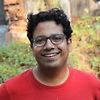
Kushanava Choudhury
Kushanava Choudhury grew up in Calcutta and New Jersey. After graduating from Princeton University he worked as a reporter at the Statesman in Calcutta. He received a PhD in Political Theory from Yale University before returning to Calcutta to write a book about it, The Epic City.

Kushanava Choudhury
Kushanava Choudhury grew up in Calcutta and New Jersey. After graduating from Princeton University he worked as a reporter at the Statesman in Calcutta. He received a PhD in Political Theory from Yale University before returning to Calcutta to write a book about it, The Epic City.

